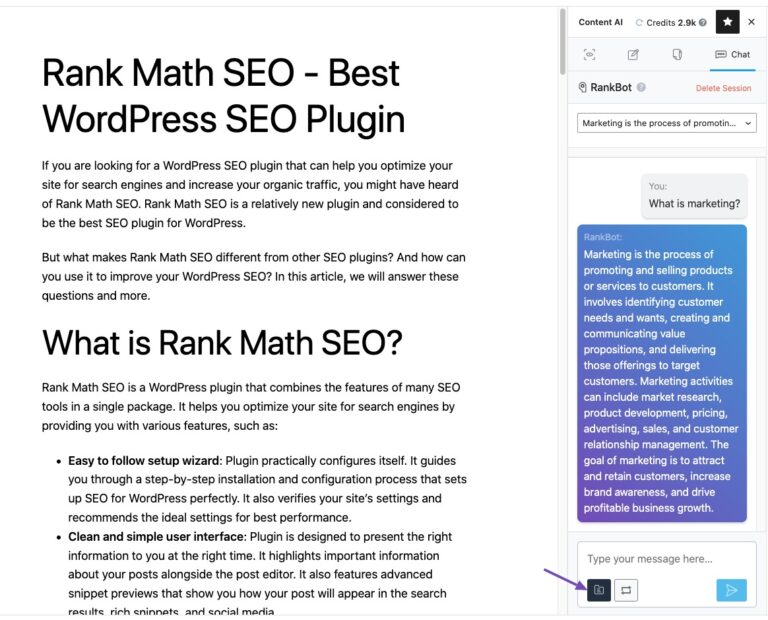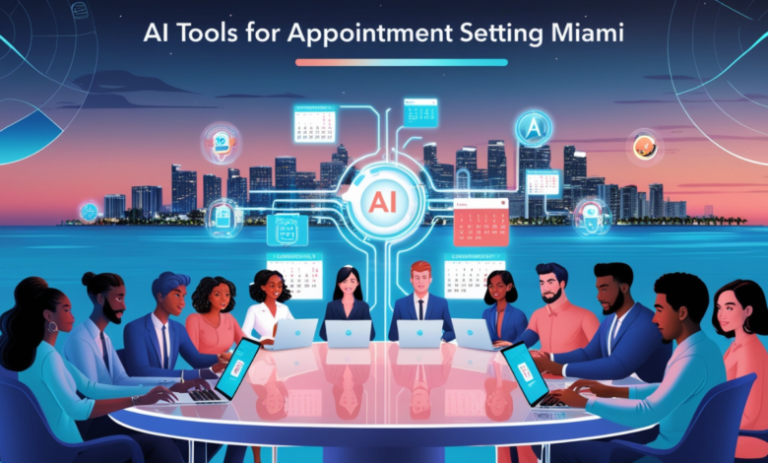Ai Tools for Customer Service: Elevate Support Efficiency!
AI tools for customer service include chatbots, virtual assistants, and automated ticketing systems. These tools improve response times and personalize interactions.
In the realm of customer support, artificial intelligence is revolutionizing how businesses interact with their clientele. AI-driven technologies enable companies to provide round-the-clock customer service, offering instant responses to inquiries which enhances user satisfaction. Chatbots harness natural language processing to understand and resolve customer issues effectively.
Virtual assistants, powered by AI, assist in navigating websites or apps, giving customers a seamless experience. Automated ticketing systems categorize and prioritize customer queries, ensuring they are addressed efficiently. This integration of AI within customer service not only elevates the customer experience but also optimizes support teams’ workflows, leading to a noticeable increase in both operational efficiency and customer loyalty.
The Rise Of Ai In Customer Service
Businesses today are embracing the digital revolution with open arms. Artificial Intelligence (AI) has dramatically reshaped customer service, offering new ways to connect with customers. AI tools improve efficiency, reduce costs, and enhance the user experience. Firms across industries leverage these tools to stay ahead in the competitive market. Let’s explore how AI is transforming the customer service landscape.
Transforming Interaction With Ai Chatbots
Imagine reaching customer support and getting instant help without any wait time. AI chatbots make this possible 24/7. They interact like humans but work much faster. With AI chatbots:
- Businesses answer queries non-stop, even after hours.
- Customers get instant responses, boosting satisfaction levels.
- Chatbots can learn and improve with every conversation.
Predictive Analytics For Proactive Support
Predictive analytics is a game-changer in customer service. It uses data, algorithms, and machine learning to anticipate customer needs. Key benefits include:
- Better understanding of customer behaviors and preferences.
- Ability to offer solutions before customers face issues.
- Improved personalization of customer interactions.
With these AI tools, businesses deliver a more personalized experience, keeping customers happy and loyal.

Credit: www.trados.com
Key Ai Tools Revolutionizing Customer Support
In the fast-paced digital world, customer support sees a revolution, thanks to AI tools. These tools not only speed up the support process but also enhance the customer experience. They allow for 24/7 support with quicker responses and personalized solutions. AI is reshaping the way brands interact with customers.
Virtual Assistants And Their Capabilities
Virtual assistants, powered by AI, are leading the charge in customer support innovation. They provide instant help to customers, handle multiple queries, and even perform tasks like booking appointments or processing orders. Here are their main capabilities:
- 24/7 Availability: They are always on, offering round-the-clock assistance.
- Multilingual Support: They converse in different languages, breaking the communication barrier.
- Personalization: They remember past interactions, personalizing the experience for returning customers.
- Scalability: They can handle spikes in customer queries without waiting times.
Sentiment Analysis For Understanding Customers
Sentiment analysis uses AI to understand customers’ emotions. This tool processes customer feedback and spots trends. It guides teams to make smart decisions. Here’s how sentiment analysis transforms customer support:
| Feature | Benefit |
|---|---|
| Emotion Detection | Detects customer mood to tailor responses effectively. |
| Feedback Analysis | Identifies common issues, improving products and services. |
| Trend Spotting | Highlights customer sentiment trends, helping future strategies. |
| Real-time Insights | Provides instant analysis for quick action on customer issues. |
Implementing Ai Without Losing The Human Touch
Customer service is evolving with AI tools. These tools are fast and smart. Yet, customers still need that warmth and understanding that only a human can offer. Balancing AI with a human touch is key. Companies must use AI to help, not replace, human agents. The goal is to make customer service better and more personal.
Blending Ai With Human Agents
AI and human agents can work as a team. With AI handling routine questions, agents focus on complex issues. This means customers get fast help for simple problems and human help for tougher ones.
- AI sorts issues: It directs simple problems to bots and complex ones to agents.
- Agents assist AI: They step in when AI faces a question it can’t answer.
- Continuous learning: Agents train AI to learn from each interaction.
Ensuring Empathy In Automated Responses
AI needs to sound human. It should understand feelings and react gently. That’s where empathy comes into play. Scripting AI to recognize emotions makes a huge difference. Here’s how to keep empathy in the AI loop:
| Strategy | How It Helps |
|---|---|
| Emotion detection | AI senses the customer’s mood and responds kindly. |
| Tone matching | AI adapts its tone to the customer’s for a better experience. |
| Human override | If AI struggles, a human can take over the conversation. |
With these approaches, AI will not seem cold or robotic. Instead, customers will feel heard and cared for. A well-programmed AI brings sensitivity to digital interactions.

Credit: www.facebook.com
Impact On Support Efficiency And Csat Scores
Artificial Intelligence (AI) tools transform customer support. Services become swift and smart. Customers notice the difference. Happy customers mean higher Customer Satisfaction (CSAT) scores. This part of the blog dives into how AI boosts support efficiency while keeping users content.
Measuring Improvements In Response Times
Quick responses are crucial. AI makes it happen. Live agent capacity increases. Waiting times drop. Let’s see how these improvements look in numbers.
| Metrics | Before AI | After AI | Improvement |
|---|---|---|---|
| Average Response Time | 5 Minutes | 2 Minutes | 60% Faster |
| First Contact Resolution | 50% | 75% | 50% Improvement |
Above table shows clear time savings. It means support teams do more with less. Customers don’t wait. They love it.
Tracking Customer Satisfaction Trends
Satisfaction scores show service quality. AI gives insights into these trends. Teams make data-driven decisions. Read on to see how these scores change with AI.
- CSAT scores rise significantly.
- Negative feedback decreases.
- Positive comments increase.
Graphs show upward trends. It’s not just about numbers. It’s about real human experiences improving. AI tools are drivers of this change.
Overcoming Challenges Of Ai Adoption
Embracing AI in customer service can launch your business ahead. To tap into its power, overcome some challenges first. Let’s explore ways to address these hurdles effectively.
Addressing Privacy And Security Concerns
Protecting customer information is critical when integrating AI in customer service. Ensuring data privacy involves:
- Adherence to regulations like GDPR and CCPA.
- Implementing robust encryption techniques.
- Conducting regular security audits.
- Choosing AI tools with strong security features.
Explain the AI’s data handling to customers. Gain their trust.
Ensuring Continuous Learning And Updating Of Ai Tools
Training AI tools with the latest data means better customer service. Here are ways to keep AI tools learning:
- Provide regular updates to the AI system.
- Feed it a steady stream of fresh data.
- Use customer feedback to improve AI responses.
- Partner with experts for ongoing maintenance of AI systems.
With these steps, AI tools become more efficient over time.
Future Projections: The Evolving Landscape Of Ai Support
As digital interactions grow, AI tools for customer service are not just add-ons; they are essential. They shape how businesses connect with their customers. AI has the power to transform customer service from reactive to proactive, and from standardized to personalized. Let’s dive into what the future has in store.
Innovations On The Horizon
The tech world buzzes with talk of AI. Next-generation AI tools are set to revolutionize customer service. Innovations are brewing, and they hold promise for smarter, quicker service.
- Chatbots that learn from each interaction.
- AI that predicts customer needs before they arise.
- Seamless integration with devices as part of the Internet of Things (IoT).
These advancements mean more efficiency and satisfaction. Businesses will solve issues faster. Customers will enjoy smooth experiences.
The Role Of Ai In Omnichannel Support
Today’s customers use many platforms to reach out for help. They expect seamless service across all. AI plays a pivotal role in omnichannel support, ensuring a unified service experience.
AI collects data from each channel. It offers a 360-degree view of customer interactions.
Tools like AI chatbots are now a key to omnichannel support. They provide consistent answers on any platform. They are always on, ensuring no customer request goes unanswered.
Businesses enjoy the perks of efficient service management. AI-powered analytics give deep insights. These insights help to optimize the customer journey across all touchpoints.

Credit: get.momentumdash.help
Frequently Asked Questions For Ai Tools For Customer Service
How Is Ai Used In Customer Service?
AI enhances customer service by powering chatbots for instant responses, analyzing queries for personalized support, and automating routine tasks to improve efficiency and satisfaction.
What Are The Generative Ai Tools For Customer Support?
Generative AI tools for customer support include chatbots, virtual assistants, and automated response generators, like GPT-3, OpenAI’s ChatGPT, and Google’s Dialogflow. These tools streamline customer queries by providing instant, personalized assistance.
What Is Conversational Ai For Customer Service?
Conversational AI for customer service utilizes artificial intelligence to simulate human-like interactions. It automates responses and assists customers through chatbots or voice assistants, enhancing support and streamlining communication.
What Companies Use Ai For Customer Service?
Many companies use AI for customer service, including Amazon with Alexa, Apple with Siri, and Google with Assistant. IBM’s Watson is also widely integrated across various industries for customer support. Chatbots from Zendesk and LivePerson are common in e-commerce for real-time assistance.
Conclusion
Embracing AI tools is key for elevating customer service to new heights. These innovative solutions streamline support, enhance engagement, and deliver valuable insights. For businesses aiming to thrive, investing in AI customer service technology isn’t just wise, it’s essential. Start transforming your customer experience today; let AI lead the way!






